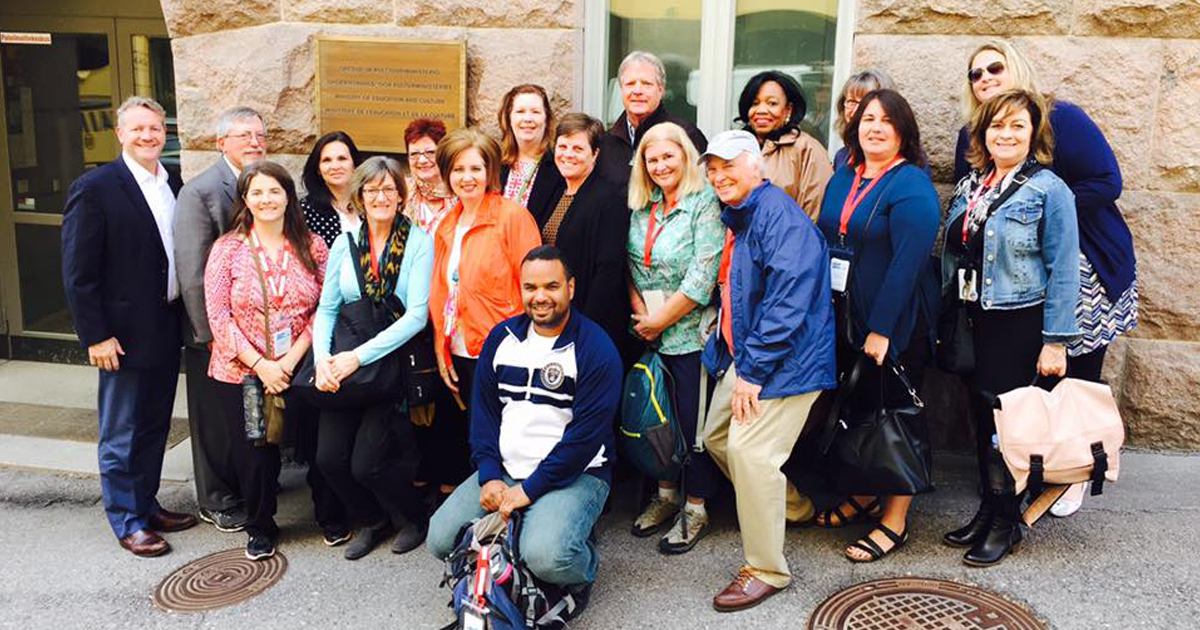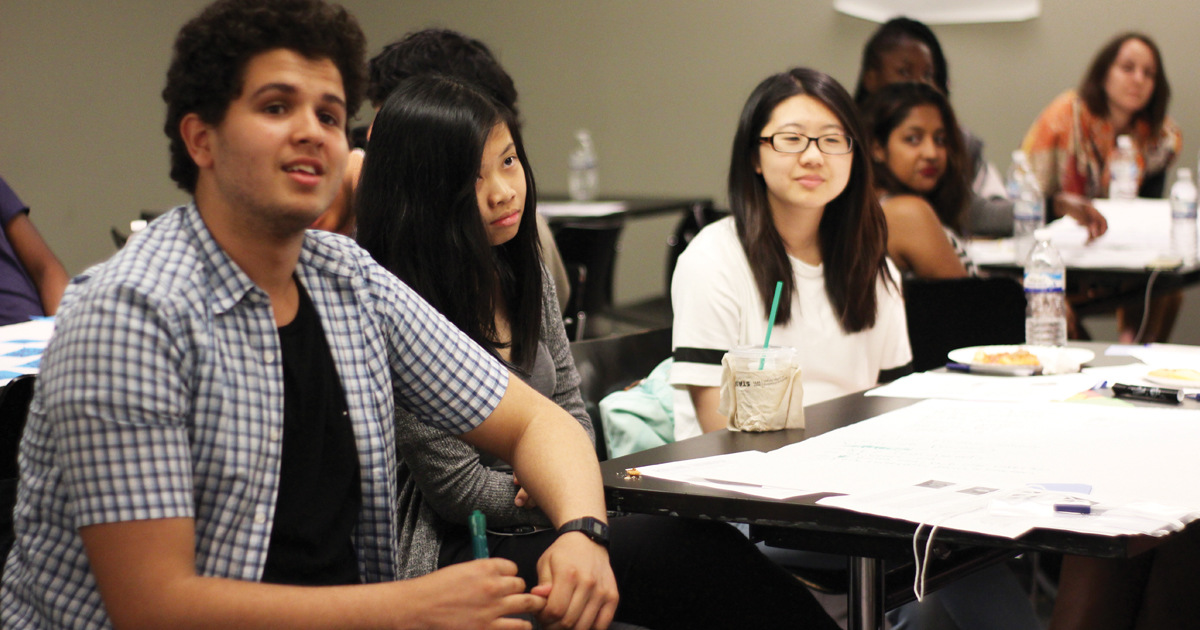This marked our third year of connecting NAA members to their colleagues in other countries, and if there is one thing that is consistent in all of these places it is the premium placed on youth engagement and participation. Much of this is a direct result of the United Nations Convention on the Rights of the Child, which is a human rights treaty that sets out the civil, political, economic, social, health and cultural rights of children. Despite the fact that the US is the only United Nations member state that is not a party to the treaty, there are some strong examples of youth engagement efforts that mirror those of our global partners. We featured one in our most recent issue of Afterschool Today. Read more about the Intergenerational Change Initiative and how their efforts are impacting advocacy and policy efforts for young people in New York City.
Although primary stakeholders in public education, housing, juvenile justice and healthcare, youth are glaringly absent in helping shape policies that impact their lives. Around the world, interactive mobile technology connects citizens directly with their governments, especially traditionally marginalized and hard to reach people. The Intergenerational Change Initiative (ICI) aims to help policymakers, activists and advocates engage a broad and diverse swath of youth in the civic ecosystem. Linking a participatory action research (PAR) approach, youth council networks/activism organizations and technology enables youth organizers and city decision-makers to generate social science research that informs local policy and action.
ICI's research collective spent the past year engaging over 200 New York City youth ages 12 to 24 in a participatory design process that has yielded a technology blueprint, an annual youth survey, and a design for developing a civic communication infrastructure between youth and their government. This vignette and accompanying photos offer a snapshot of the brilliant youth shaping this initiative:
Around 4 p.m. on a Thursday in spring, NYC teens started to enter the large room at the CUNY Graduate Center. Some came because a friend sent them the invite for the "Survey and Tech Design Dinner Party;" others were part of youth programs/councils that forwarded the opportunity to members. Others came because they attended one of three previous similar events. High school seniors from the Young Hackers (a group of high school programmers, hackers and technologists) that were co-facilitating the event with CUNY researchers greeted the young mom who brought her 2-year-old, two teens from the UN school and the young man who had recently gotten out of a juvenile facility. Others soon poured into the room from different types of NYC schools, neighborhoods and walks of life as the 4:30 p.m. start time approached. Ultimately, 60 youth attended the dinner party, where they spent a few hours revamping the latest version of an annual youth survey and developing paper-pen prototypes for the tech while eating, laughing and having conversations about everything from sexual education to internet access.
With support from Ford Foundation and the Young Men's Initiative, ICI will build out the system designed in partnership with youth and begin implementation in NYC this fall. Yet devotion to encouraging deep youth engagement is not unique to NYC. Policy makers, youth activists and advocates from around the country committed to maintaining a vibrant democracy for the next generation of citizens seek ways to shift their institutions, political processes and cultures to be more inclusive while also making direct efforts to enhance young people's civic skills, knowledge, and behavior via civic education and opportunities for service. ICI's combination of using social science data derived from a youth PAR approach, activating networks of youth leaders and utilizing youth designed technology contributes to a rich civic ecosystem. This is an opportune time for more municipalities to tap into young people's expertise on their lived experiences to build better policies and improve local communities.
Written by Sarah Zeller-Berkman, PhD, Academic Director of Youth Studies Programs, CUNY School of Professional Studies and Director of The Intergenerational Change Initiative. For more information, contact her at Sarah.Zeller-Berkman@cuny.edu.
Stay tuned for more details about ILE17 and information on ILE18 when we'll be traveling to Italy to explore the intersection of afterschool and early childhood education.





